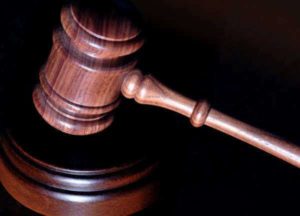Unveiling the Dark Side of Copyright Infringement: Shocking Cases Revealed
In an era where digital content is consumed at an unprecedented rate, the issue of copyright infringement has emerged as a significant concern for creators, industries, and legal systems alike. As technology continues to evolve, so too do the methods by which individuals and organizations infringe upon the intellectual property rights of others. This article delves into the dark side of copyright infringement, revealing shocking cases and exploring the implications for creators and industries in the digital age.
Understanding Copyright Infringement: Definitions and Legal Implications
Copyright infringement occurs when an individual or entity uses a copyrighted work without permission from the copyright holder. This can include reproducing, distributing, or publicly displaying the work without authorization. The legal implications of copyright infringement are severe, as it undermines the rights of creators and can lead to significant financial losses. Under the Copyright Act, creators are granted exclusive rights to their works, and violations can result in civil lawsuits, statutory damages, and even criminal penalties in egregious cases. Understanding these definitions and implications is crucial for both creators and consumers of digital content.
The Rise of Digital Media: A Breeding Ground for Copyright Violations
The proliferation of digital media has created an environment ripe for copyright violations. With the ease of access to online platforms, users can share, download, and modify content with minimal barriers. Social media, streaming services, and file-sharing websites have become common venues for the unauthorized distribution of copyrighted materials. This shift has not only made it easier for infringers to operate but has also complicated enforcement efforts for copyright holders. As digital content continues to dominate the landscape, the challenge of protecting intellectual property rights becomes increasingly daunting.
Notorious Cases of Copyright Infringement: Lessons from the Past
Several high-profile cases of copyright infringement have highlighted the challenges faced by creators in protecting their work. One notable example is the case of "Blurred Lines," where the estate of Marvin Gaye successfully sued Robin Thicke and Pharrell Williams for their hit song, which was found to have copied elements of Gaye's "Got to Give It Up." This case underscored the complexities of determining originality and the fine line between inspiration and infringement. Another infamous case involved the online platform Napster, which was shut down in the early 2000s for facilitating the illegal sharing of music. These cases serve as cautionary tales, illustrating the potential consequences of copyright infringement and the importance of respecting intellectual property rights.
The Impact of Copyright Infringement on Creators and Industries
The ramifications of copyright infringement extend far beyond legal penalties; they can have devastating effects on creators and entire industries. For individual artists, writers, and musicians, unauthorized use of their work can lead to lost revenue and diminished recognition. Industries reliant on intellectual property, such as publishing, music, and film, face significant financial challenges when their content is pirated. This not only affects the livelihoods of creators but also stifles innovation and creativity, as potential revenue streams are compromised. The broader economic impact of copyright infringement can hinder growth and investment in creative sectors, ultimately affecting cultural production and diversity.
Legal Consequences: How Courts Address Copyright Infringement Cases
Courts play a critical role in addressing copyright infringement cases, often setting precedents that shape the legal landscape. When a copyright holder files a lawsuit, the court examines various factors, including the originality of the work, the extent of the infringement, and the intent of the infringer. Remedies for copyright infringement can include monetary damages, injunctions to prevent further infringement, and, in some cases, statutory damages that can reach into the millions. The legal process can be lengthy and complex, often requiring expert testimony and extensive documentation. As courts navigate these cases, they contribute to the evolving interpretation of copyright law in the digital age.
Preventative Measures: Protecting Your Work in the Digital Age
In light of the pervasive nature of copyright infringement, creators must take proactive steps to protect their work. This includes registering copyrights with the appropriate authorities, which provides legal recognition and facilitates enforcement in case of infringement. Creators should also consider using digital rights management (DRM) tools to control access to their content and monitor its distribution. Additionally, educating oneself about copyright laws and the importance of licensing agreements can empower creators to safeguard their intellectual property. By adopting these preventative measures, individuals and organizations can better navigate the challenges posed by the digital landscape and protect their creative endeavors.
As the digital age continues to evolve, the issue of copyright infringement remains a pressing concern for creators and industries alike. The shocking cases revealed in this exploration serve as a reminder of the importance of respecting intellectual property rights and the potential consequences of infringement. By understanding the legal implications, recognizing the impact on creators, and implementing preventative measures, stakeholders can work towards a more equitable and respectful digital environment. The fight against copyright infringement is not just a legal battle; it is a cultural imperative that upholds the value of creativity and innovation in our society.
